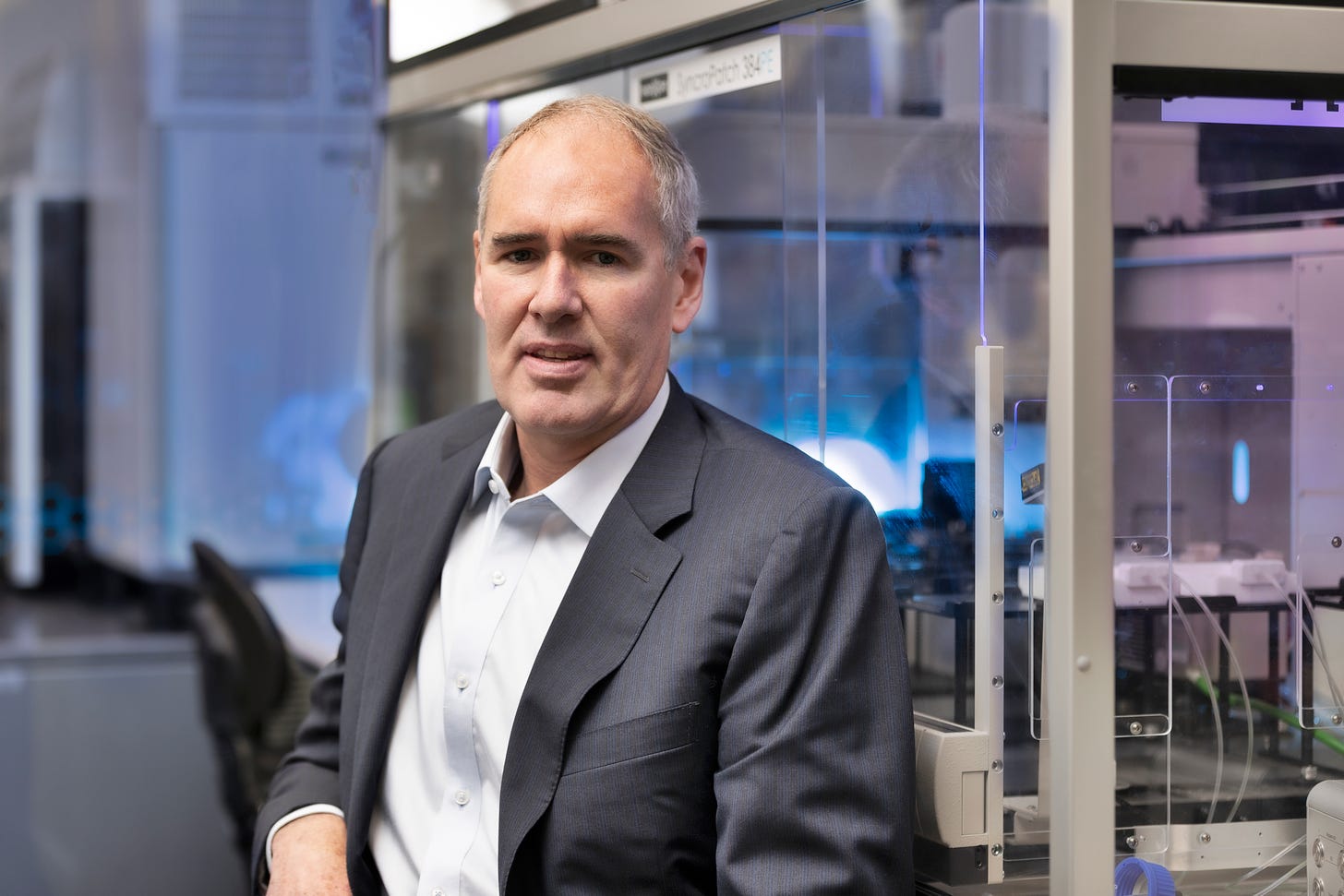Australians should think about a very important new cholesterol test
Top cardiologists want doctors all over Australia to start checking for a new sign of "bad" cholesterol.
Professor Jason Kovacic, who is the Executive Director of the Victor Chang Cardiac Research Institute, says that people need to be much more aware of the dangers of Lp(a), which can be found with a simple blood test.
He says that up to 20% of the population might have Lp levels that are at least a little bit too high (a).
Professor Kovacic says, "It is very scary to think that tens of thousands of Australians could be at a higher risk of getting heart disease but have no idea." With a single blood test, we could find these people."
Lp(a) is now known to be a major risk factor for atherosclerosis, which is the buildup of plaque in the arteries of the heart that causes them to harden and narrow. Atherosclerosis is the main cause of heart disease.
Lp(a) is strongly linked to a person's genes, but it is not yet routinely tested for, even though new research shows that people with high Lp(a) levels are 2–4 times more likely to get atherosclerosis.
Current cholesterol panels, which are also called "lipid panels," usually check for levels of four markers: LDL, which is the well-known "bad" type of cholesterol linked to lifestyle factors, total cholesterol, HDL, which is the "good" type of cholesterol, and triglyceride levels.
Professor Kovacic, a cardiologist at St. Vincent's Hospital in Sydney and the Institute's director of atherosclerosis research, believes that Lp(a) can no longer be ignored.
Professor Kovacic and other cardiologists are calling for Lp(a) testing to be done on men younger than 55 and women younger than 60 who have had a heart attack, stroke, angina, coronary stent, or coronary bypass surgery that can't be explained by other risk factors. In Australia, the question of who pays for the test hasn't been settled yet. Or if these heart diseases run in your family and you are a man under 55 or a woman under 60 without any obvious risk factors.
Even though testing everyone isn't a good idea right now, testing for Lp(a) levels may benefit some people, such as those who have a family member who has been diagnosed with high Lp(a).
Professor Kovacic says, "We have long wondered why healthy people with low cholesterol levels and no other major risk factors like smoking or diabetes can have heart attacks. But now we know that many of these things could be caused by high levels of Lp(a).
"If we could find people with high levels of Lp(a) much earlier in their lives, we would not only be able to help them avoid life-threatening complications, but we would also be able to test their family members because this is genetic."
New therapies that target Lp(a) and lower it are in the final phase of clinical studies.
Associate Professor Peter Psaltis, who directs the Heart and Vascular Program at the South Australian Health and Medical Research Institute, agrees that testing people with early heart disease and those thought to be at higher risk for high Lp(a) is time.
A/Prof Psaltis, who is also a cardiologist at the Royal Adelaide Hospital, says, "While we wait for these new treatments to come out, there is still a lot we can do to make sure that people with high Lp(a) levels have their other risk factors managed more aggressively. We can also keep a closer eye on these people, but only if we know who they are in the first place."
Sarah Beale, whose partner Ben died of a heart attack at age 47 while jogging, agrees that more people need to know about it and that testing should be done more often.
Ben's death was first called a "one-time catastrophe," but Professor Kovacic was able to figure out that Ben probably had higher levels of Lp in his blood (a).
This means that all five of Ben's children can now be tested for Lp(a) and closely watched.
Sarah says, "It breaks my heart to think that a simple blood test might have saved Ben's life. But at least our family knows where he came from and what probably caused his heart attack. It's also a huge relief that we can now test his children to see if they are at risk. It's long past time for this test to be widely used so we can keep other families from losing loved ones."
Before you go..
You can get RedWires AU for free right now. Your donation, no matter how big or small, will help us keep doing honest journalism.
The readers of Redwires AU are the engine that drives our publication. Add your support to the effort to create a sustainable future for journalism that does not make compromises in the AU.
In the world we live in now, accurate and thorough reporting and analysis are becoming more and more important. To stop the spread of false information, it's very important that everyone in Australia has access to good reporting.
The Redwires AU contributes to society by opening up access to information and resources for all people, rather than just a select few.
Our only goal is to educate the general public more thoroughly. If you believe in what we're trying to accomplish here, please consider making a contribution right away to ensure our success in the years to come.
Upgrade your subscription to get the most out of it. Join the growing number of people around the world who believe in the power of independent media.
Thank you
Miko Santos





